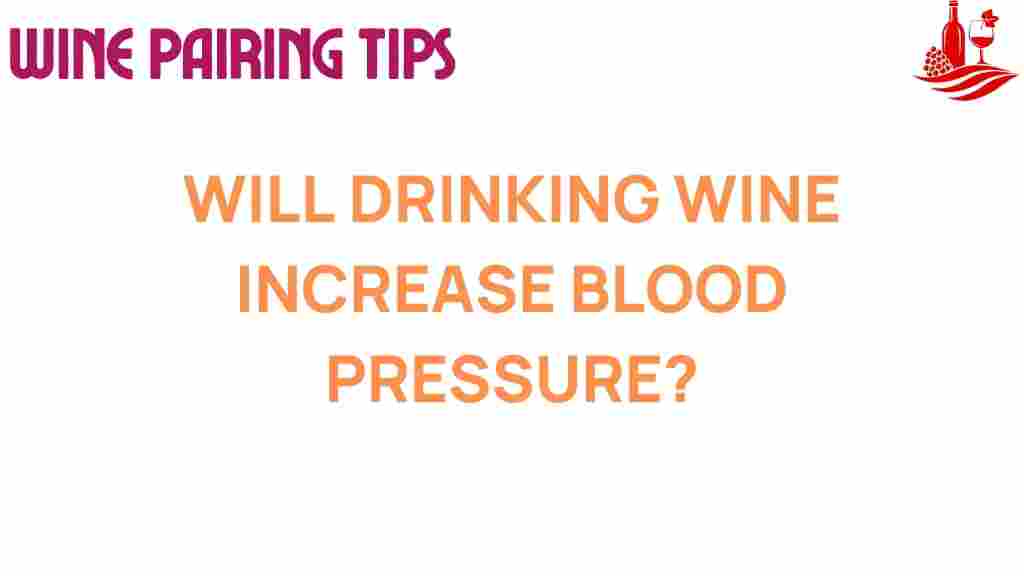Can Wine Consumption Impact Your Blood Pressure Levels?
Wine has long been a staple in many cultures, often associated with social gatherings and culinary experiences. However, beyond its cultural significance, wine has been a topic of interest in health discussions, particularly concerning its impact on blood pressure levels. Understanding the relationship between wine, blood pressure, and overall cardiovascular health requires an exploration of several factors, including the type of wine, the quantity consumed, and the individual’s overall health and dietary habits.
The Health Effects of Wine on Blood Pressure
Research into the health effects of wine consumption has produced mixed results, particularly when it comes to blood pressure. Some studies suggest that moderate wine consumption may be associated with a lower risk of hypertension, while excessive alcohol consumption can lead to elevated blood pressure levels. Here are some key points to consider:
- Moderate Consumption: The key to benefiting from wine lies in moderation. Moderate consumption is typically defined as one glass of wine per day for women and up to two glasses for men.
- Type of Wine: Red wine is often highlighted for its potential health benefits due to its high levels of antioxidants, such as resveratrol, which may promote cardiovascular health.
- Individual Differences: The impact of wine and alcohol consumption can vary based on individual health factors, including genetics, diet, and lifestyle.
The Science Behind Wine and Blood Pressure
Numerous studies have investigated the connection between wine consumption and blood pressure levels. Here are some important findings:
- One study published in the American Journal of Hypertension found that moderate wine drinkers had a lower risk of developing hypertension compared to non-drinkers.
- Another study indicated that the polyphenols in red wine could improve endothelial function, which is crucial for maintaining healthy blood pressure levels.
- However, excessive alcohol consumption has been linked to increased blood pressure and should be avoided.
Moderation is Key
When discussing wine and blood pressure, moderation is a crucial aspect. Here are some tips for enjoying wine responsibly:
- Set Limits: Stick to the recommended guidelines for moderate alcohol consumption.
- Choose Quality over Quantity: Opt for higher-quality wines that may offer more health benefits.
- Pair with Food: Consuming wine with meals can help mitigate its effects on blood pressure.
Understanding Alcohol Consumption and Its Effects on Health
Alcohol consumption can have varied effects on health, often depending on the amount consumed and the individual’s overall lifestyle. Here’s how it can affect cardiovascular health:
- Short-term Effects: Moderate consumption can lead to temporary decreases in blood pressure and improved circulation.
- Long-term Effects: Chronic excessive consumption can result in hypertension, heart disease, and other health issues.
Dietary Habits and Their Role in Blood Pressure Management
Wine consumption should be viewed as part of a broader lifestyle approach to health and wellness. Here are some dietary habits that can support healthy blood pressure levels:
- Increase Fruits and Vegetables: A diet rich in fruits and vegetables provides essential nutrients and antioxidants that can support cardiovascular health.
- Limit Sodium Intake: Reducing salt consumption is crucial for maintaining healthy blood pressure.
- Whole Grains: Incorporating whole grains can contribute to overall heart health.
Holistic Wellness Approaches
To achieve optimal wellness, consider a holistic approach that includes not just dietary changes but also lifestyle modifications:
- Regular Exercise: Engaging in physical activity can help lower blood pressure and improve heart health.
- Stress Management: Techniques such as yoga and meditation can play a significant role in managing stress, which is beneficial for blood pressure.
- Sufficient Sleep: Quality sleep is essential for overall health and can impact blood pressure management.
Research and Ongoing Studies
The relationship between wine and blood pressure is an evolving area of research. Scientists continue to explore the nuances of how various types of wine, quantities, and drinking patterns influence health outcomes. Future studies may provide more insights and clearer guidelines for wine consumption in relation to blood pressure.
Potential Troubleshooting Tips
If you are concerned about your blood pressure levels and wine consumption, consider the following troubleshooting tips:
- Monitor Your Intake: Keep a journal of your wine consumption and blood pressure readings to identify any patterns.
- Consult a Healthcare Professional: If you have hypertension or other health concerns, it’s essential to seek advice from a healthcare provider.
- Be Aware of Medications: Certain medications can interact with alcohol, so it’s important to discuss your wine consumption with your doctor.
Conclusion
In conclusion, the relationship between wine consumption and blood pressure is complex and influenced by various factors, including the amount of wine consumed, type of wine, and individual health conditions. Moderate wine consumption may offer some health benefits, particularly for cardiovascular health, while excessive alcohol intake can lead to negative outcomes. Adopting a well-rounded approach to wellness—encompassing dietary habits, physical activity, and stress management—can further support healthy blood pressure levels. Always remember that moderation is key, and if you have concerns about your health, consulting a healthcare professional is advisable.
For more information on maintaining a healthy lifestyle, check out this resource.
This article is in the category Tips and created by Wine Pairing Tips Team
